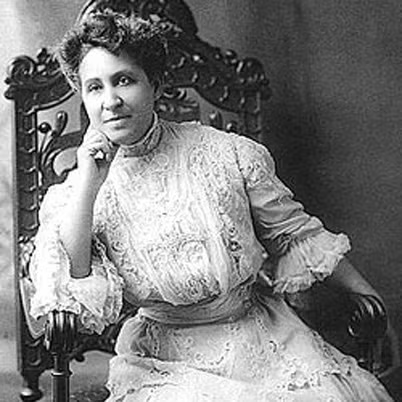
Table of Contents
Who Was Mary Church Terrell?
Mary Church Terrell, a prominent figure in the struggle for civil rights and women’s suffrage, was born on September 23, 1863, in Memphis, Tennessee. The daughter of Robert Reed Church and Louisa Ayers, both of whom were former enslaved individuals, Terrell grew up in a household that emphasized the importance of education and community involvement. Her parents became successful small-business owners, contributing significantly to the burgeoning Black population in Memphis. This foundation instilled in Terrell a strong work ethic and ambition that would shape her future endeavors.
Early Years
An influential educator and activist, Terrell attended Oberlin College in Ohio, where she made history by becoming one of the first African American women to earn a college degree in 1884. She furthered her education by obtaining a master’s degree in education four years later. During her time at Oberlin, she met Robert Heberton Terrell, a talented attorney who would later become the first Black municipal judge in Washington, D.C. The couple married in 1891, settling in the nation’s capital, where Terrell’s activism flourished.
An Activist’s Life
Mary Church Terrell was a tireless advocate for civil rights and women’s suffrage. Upon moving to Washington, D.C., she became deeply involved in the women’s rights movement, particularly focusing on securing voting rights for African American women. However, she encountered resistance and exclusion from mainstream suffrage organizations, which motivated her to take action. In 1896, she co-founded the National Association of Colored Women (NACW) and was appointed its first president, using this platform to advocate for social and educational reforms.
Her dedication and leadership garnered further recognition; at the urging of W.E.B. Du Bois, Terrell became a charter member of the National Association for the Advancement of Colored People (NAACP). Notably, she was the first African American woman appointed to a school board and served on a committee investigating police mistreatment of African Americans.
Later Life and Career
Terrell’s commitment to fighting Jim Crow laws and advocating for civil rights remained steadfast throughout her later years. In 1949, she became the first African American admitted to the Washington chapter of the American Association of University Women. A landmark moment in her activism occurred in 1950 when she was denied service at a whites-only restaurant in Washington, D.C. Terrell and other activists subsequently sued the establishment, leading to a court ruling that deemed all segregated restaurants in the city unconstitutional.
Death
Mary Church Terrell witnessed significant civil rights advancements throughout her life, including the landmark Supreme Court decision in Brown v. Board of Education in 1954, which declared segregation in schools unconstitutional. Just two months later, on July 24, 1954, she passed away in Annapolis, Maryland.
Today, Terrell’s legacy is honored with her home in Washington, D.C., designated as a National Historic Landmark, a testament to her enduring impact on civil rights and social justice.
